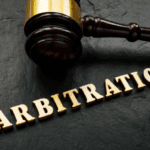The assets owned by a third party but in the hands of the Corporate Debtor held according to contractual arrangements are excluded from the definition of “assets” under Section 18 of the IBC, according to a Bench made up of Justices V. Ramasubramanian and Pankaj Mithal, although the stated exclusion does not apply to Section 25 of the IBC. As a result, Section 25 of the IBC does not apply the Explanation to Section 18. According to the Supreme Court, a resolution specialist has the power to assume control of a corporate debtor’s rights to assets that are subject to third-party licences. Such an RP action will fall under the purview of Section 25 of the 2016 Insolvency and Bankruptcy Code.
Facts
A piece of property totaling 10.19 acres is ostensibly owned by M/s Energy Properties Private Limited (“Energy Properties”). Energy Properties received financing from Avani Towers Private Limited (“Corporate Debtor”) for the acquisition of the aforementioned Property, and Avani Towers Private Limited also owns 40% of Energy Properties’ share capital. Moreover, Energy Properties and the Corporate Debtor signed a Joint Development Agreement under which the latter was obligated to build a housing complex on the Property. On August 19, 2011, the Corporate Debtor then signed a Leave and License Agreement in favour of Victory Iron Works Ltd. (hereafter, “Victory”), with Energy Properties serving as a confirming party. Victory was given a licence to use a portion of the property, measuring 10,000 square feet.
Energy Properties has told the Resolution Professional that it is ejecting security personnel from the Property against their will, according to the suspended board of directors of the corporate debtor. As a result, the Resolution Professional filed an application under Section 25 of the IBC asking the local district administration to offer the Resolution Professional help in obtaining sole and exclusive control of the Property and directing Energy Properties and Victory not to block it. On February 12, 2020, the Adjudicating Authority ordered Energy Properties and Victory to refrain from interfering with the Resolution Professional’s possession and operations. Furthermore, it was decided that the order won’t stop Victory from operating on the section of the property that was granted to them under the Leave and License Agreement.
On the appeal, NCLAT affirmed that the Resolution Professional must state in the Information Memorandum that the Corporate Debtor solely has development rights to the Property. Victory appealed the order to the Supreme Court. The RP supported the NCLT/NCLAT rulings by arguing that the contested orders had not interfered with Victory’s rights and that what was sought to be included in the Information Memorandum were the Corporate Debtor’s development rights over the in-question property.
Analysis
From the contentions, two primary issues are raised –
1) what is the nature of the right or interest that the Corporate Debtor has over the property in question, for the purpose of deciding the inclusion of the same in the Information Memorandum prepared by the Resolution Professional under Regulation 36 of the Regulations? and
(2) whether NCLT and NCLAT have exercised a jurisdiction not vested in them in law by seeking to recover/protect the possession of the Corporate Debtor?
Issue 1 – Although the term “property” is defined in Section 3, it is apparent from Sections 18 and 25 that the word “asset” is used in these clauses instead. Nevertheless, the IBC does not define the word “asset,” which is used in Sections 18 and 25. For the definition of terms and expressions used but not specified in the Code, Section 3(37) provides reference to seven distinct enactments that may be consulted. The terms “asset” and “property” are not defined in the Indian Contract Act, 1872. Both of these terms are not defined under the Indian Partnership Act of 1932.
Development rights created in the favour of the Corporate Debtor are considered “property” under Section 3(27) of the IBC. It must be stated again, at the expense of repetition, that “any kind of interest, including current or future or vested or contingent interest arising out of or incidental to property” is included in the definition of the term “property” under Section 3(27). As “asset” in everyday speech refers to “property of any type,” the collection of rights that the Corporate Debtor holds over the subject property would be considered “asset” for purposes of Sections 18(f) and 25(2)(a) of the IBC.
Issue 2 – The main argument used by the appellants against the challenged NCLT and NCLAT orders is that the disputes between the Corporate Debtor and the third-party lessee/licensee are not subject to the jurisdiction of the authorities under the Code because of the explanation provided under Section 18 of the Code and because of judicial pronouncements.
In this respect, the Court noted that a caveat, “for the purposes of this Section,” precedes the Explanation under Section 18 of the IBC. The exclusion of property held by the Corporate Debtor under contractual agreements that is owned by a third party from the definition of “assets” is only applicable to Section 18 and does not apply to Section 25. It was also noted that security personnel were stationed at the Property, and as a result, NCLT and NCLAT managed to strike a delicate balance by defending Victory’s interests to the extent of the territory that was allowed to be occupied. Victory is only a licensee, not a lessee, and a licence does not give rise to any interest in the immovable property.
Records confirm that there were security officers stationed on the premises. Because of this, the NCLT and NCLAT have achieved a careful balancing act by safeguarding Victory’s rights to the degree that the land is allowed to be inhabited. Victory is only a licensee and does not even have the status of a lessee. No interest in the real estate is created by a licence. Thus, the Corporate Debtor’s possession of the property needs to be preserved, as found by NCLT and NCLAT.



